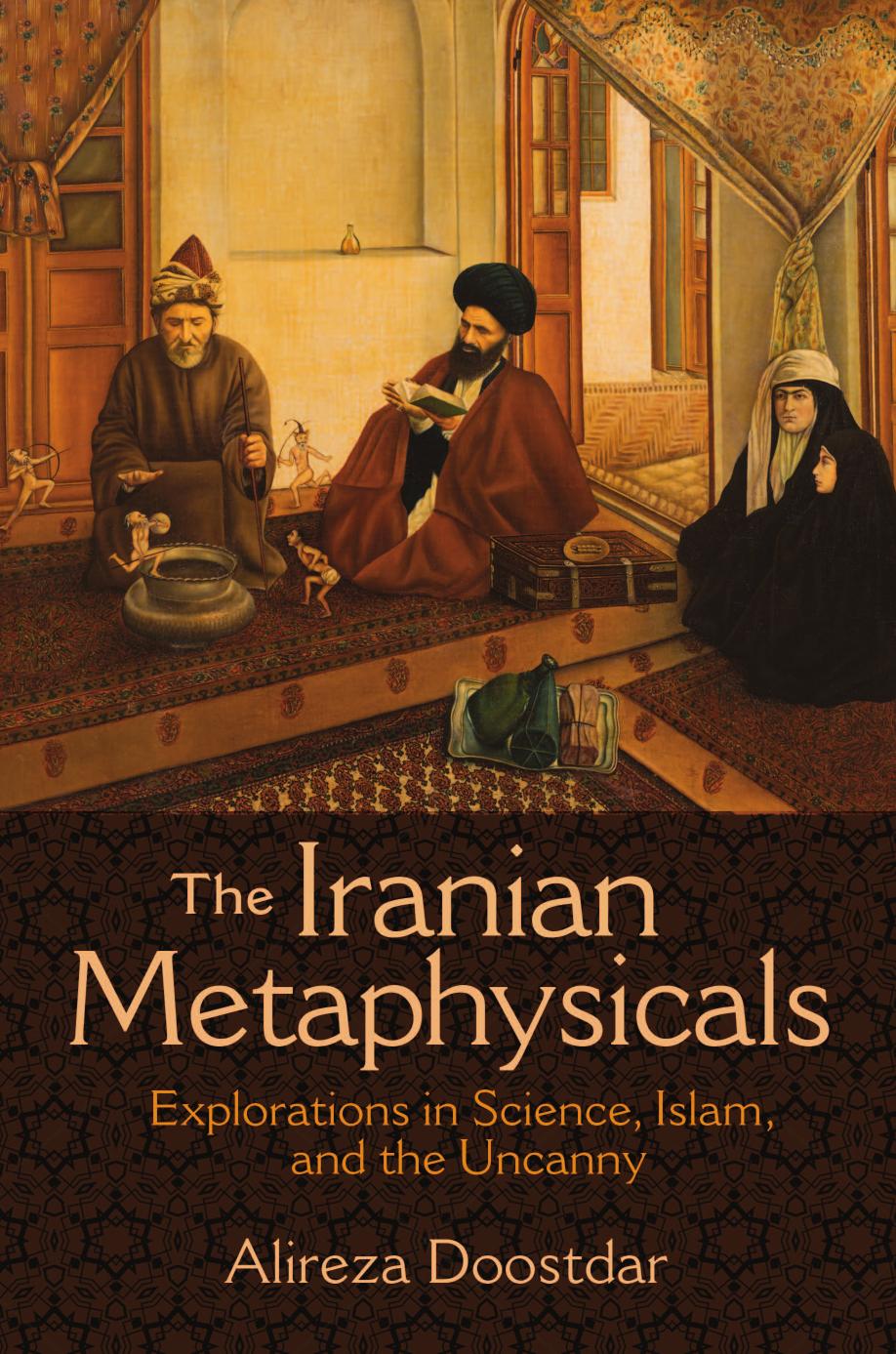The Iranian Metaphysicals: Explorations in Science, Islam, and the Uncanny by Alireza Doostdar

Author:Alireza Doostdar
Language: eng
Format: epub, pdf
Publisher: Princeton University Press
Published: 2018-03-18T04:00:00+00:00
SPECTERS OF DOUBT
Taheri’s claims to scientific legitimacy have been persistent and forceful. Even so, his relationship to science is ambivalent. A hesitation lies at the very heart of Cosmic Mysticism’s epistemology, where science is claimed as a privileged path to truth but empirical methods are circumvented at crucial points in favor of intuition and mystical unveiling. Taheri maintains that by connecting to the Cosmic Intelligence, one can receive “consciousness” (agahi) comprising knowledge of both self and world, microcosm and macrocosm. This, he explains, is how he received the knowledge that constitutes the doctrines and practices of Cosmic Mysticism:
This discipline was created due to my encounter … with the realities and truths of existence, which attracted my intense attention since childhood; contemplation about “Where have we come from? Why have we come? Where are we going? Who is the Creator? Why has he created [us]? What is the result of this creation? Who is the human? What are the ways for approaching and knowing him? How is his potential power activated? What are life and death? And so on …” That is, I had an intense enthusiasm to understand the world of existence and discover the secret of creation, such that these thoughts would not leave me for a moment. Finally, on November 1, 1978, all at once I encountered inspirations and mental receptions after which certain aspects of existence and the human became clear to me.1
In other words, scientific knowledge about the world may be received in the form of revelation or mystical unveiling. The idea is not particularly novel, of course. Some Muslim thinkers have argued that modern scientific findings were anticipated by the Qurʾan, a perspective that remains popular to this day.2 Others have extended the argument to the mystics, comparing Albert Einstein and other European scientists to Sufi visionaries.3 Western esotericists, the Theosophists among them, had earlier made similar claims about the sages of the East.4 Among Iranians, their views were furthered by intellectuals like the Theosophist journalist and mystical leader Hoseyn Kazemzadeh Iranshahr (1884–1962), the literary scholar and politician Mohammad Parvin Gonabadi (1903–78), and the lawyer and author Mohsen Farshad (b. 1945). Iranshahr defended mysticism and occult science, whose roots, he argued, were established in the East, and whose profound insights would eventually be confirmed by modern science just as “those things that people considered to be sorcery or occult secrets and mysteries several centuries ago are now taught to schoolchildren in their introductory science classes.”5 Parvin wrote that the spirit of scientific enlightenment, discovery, and inventiveness in the West was similar to “the prodigious spirit that existed, in the name of vision [kashf] and marvel [karamat], among many of our country’s great Sufis and authentic holy men.”6 Farshad, whose inspirations include Allan Kardec (the founder of Spiritism) and Fritjof Capra (a physicist whose influential The Tao of Physics claimed to identify parallels between modern physics and Eastern mysticism) argued that the discoveries of quantum physicists were presaged by the thirteenth-century Sufi poet Jalal al-Din Rumi.7 Taheri’s claims to cosmic inspiration thus build on an already well-developed discourse.
Download
The Iranian Metaphysicals: Explorations in Science, Islam, and the Uncanny by Alireza Doostdar.pdf
This site does not store any files on its server. We only index and link to content provided by other sites. Please contact the content providers to delete copyright contents if any and email us, we'll remove relevant links or contents immediately.
| Africa | Americas |
| Arctic & Antarctica | Asia |
| Australia & Oceania | Europe |
| Middle East | Russia |
| United States | World |
| Ancient Civilizations | Military |
| Historical Study & Educational Resources |
Cecilia; Or, Memoirs of an Heiress — Volume 1 by Fanny Burney(32558)
Cecilia; Or, Memoirs of an Heiress — Volume 2 by Fanny Burney(31956)
Cecilia; Or, Memoirs of an Heiress — Volume 3 by Fanny Burney(31942)
The Secret History by Donna Tartt(19092)
Sapiens: A Brief History of Humankind by Yuval Noah Harari(14390)
Leonardo da Vinci by Walter Isaacson(13337)
The Radium Girls by Kate Moore(12030)
Sapiens by Yuval Noah Harari(5372)
How Democracies Die by Steven Levitsky & Daniel Ziblatt(5219)
The Wind in My Hair by Masih Alinejad(5095)
Homo Deus: A Brief History of Tomorrow by Yuval Noah Harari(4919)
Endurance: Shackleton's Incredible Voyage by Alfred Lansing(4784)
Man's Search for Meaning by Viktor Frankl(4607)
The Silk Roads by Peter Frankopan(4535)
Millionaire: The Philanderer, Gambler, and Duelist Who Invented Modern Finance by Janet Gleeson(4479)
The Rape of Nanking by Iris Chang(4214)
Joan of Arc by Mary Gordon(4115)
The Motorcycle Diaries by Ernesto Che Guevara(4102)
Stalin by Stephen Kotkin(3969)
